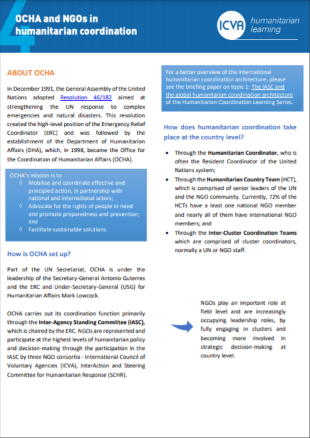
Briefing Paper - OCHA and NGO’s in Humanitarian Coordination
Humanitarian coordination
A briefing paper on OCHA and NGO’s in humanitarian coordination.


A briefing paper on OCHA and NGO’s in humanitarian coordination.
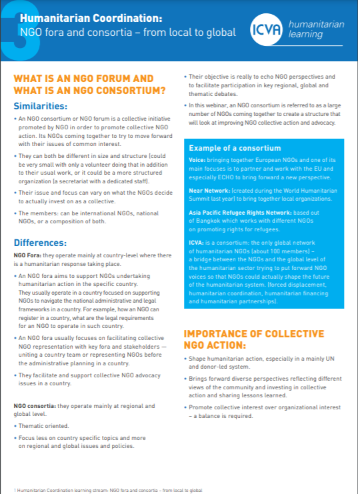
This briefing paper summarizes discussions from the third session of the humanitarian coordination learning stream, which emphasised the importance of understanding how the NGO fora and consortia function and how NGOs can engage in these structures. The session provided examples of good practice of...

This note builds on work done by ALNAP in 2016 on improving humanitarian coordination and the Global Protection Cluster and Global Education Cluster’s work on localisation. The note further draws on the regional workshops carried out by the Grand Bargain Localisation Workstream in 2019, which...
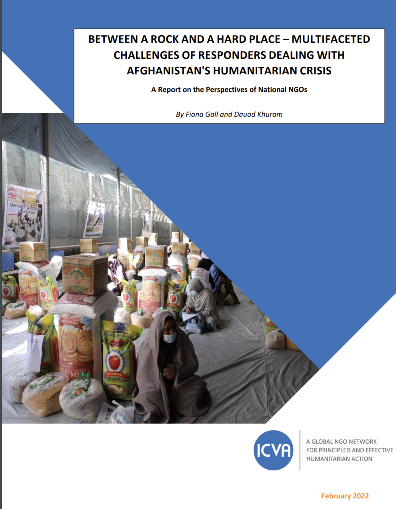
This briefing paper covers a historical analysis of NGO – Taliban relations. It highlights the challenges currently faced by the NGOs in Afghanistan, with a focus on national and local NGOs, based on findings from 41 key informant interviews and a desk review of currently available literature. It...
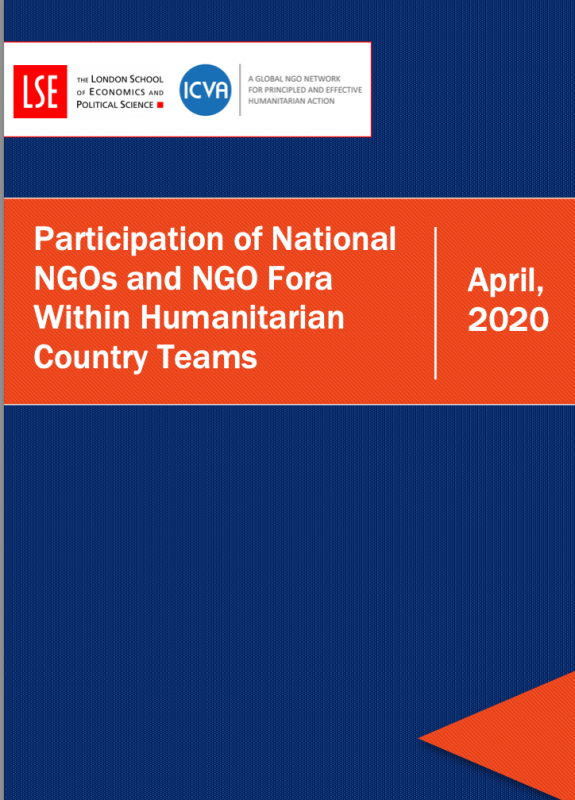
This report was commissioned by ICVA and carried out by a consultancy team from the London School of Economics. The research was conducted with the aim of exploring the quality of participation, as well as the challenges inhibiting meaningful participation, by NNGOs and NGO fora within Humanitarian...
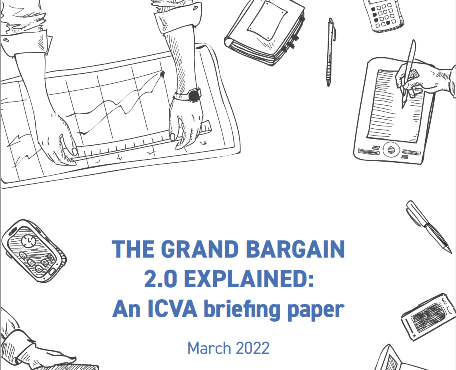
Following the ‘Grand Bargain explained’ paper published in March 2017, ICVA has drafted the ‘Grand Bargain 2.0 explained’ briefing paper to support humanitarian actors, particularly NGOs, to better understand and engage in this new phase of the Grand Bargain 2.0 from 2021 – 2023.
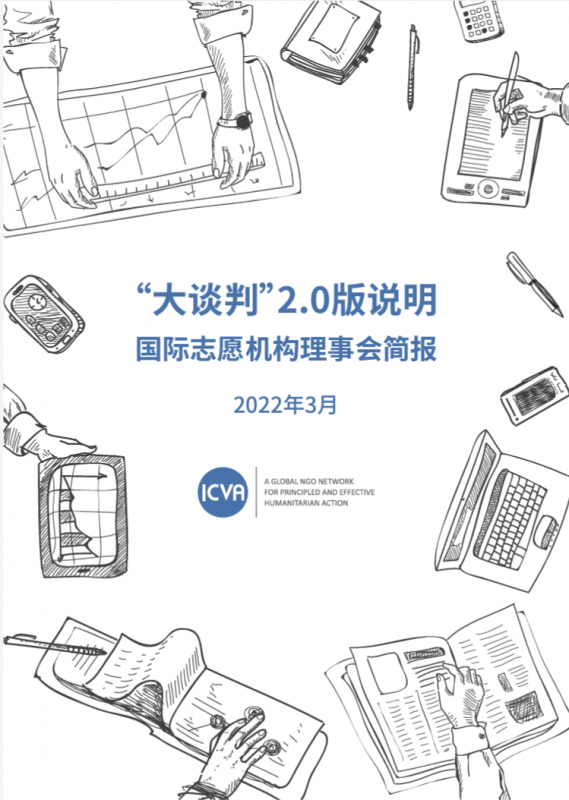
Following the ‘Grand Bargain explained’ paper published in March 2017, ICVA has drafted the ‘Grand Bargain 2.0 explained’ briefing paper to support humanitarian actors, particularly NGOs, to better understand and engage in this new phase of the Grand Bargain 2.0 from 2021 – 2023. Read the paper...
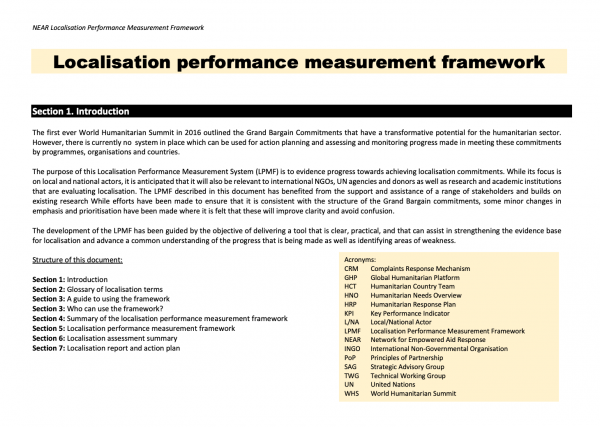
The purpose of this Localisation Performance Measurement System (LPMF) is to evidence progress towards achieving localisation commitments. While its focus is on local and national actors, it is anticipated that it will also be relevant to international NGOs, UN agencies and donors as well as...
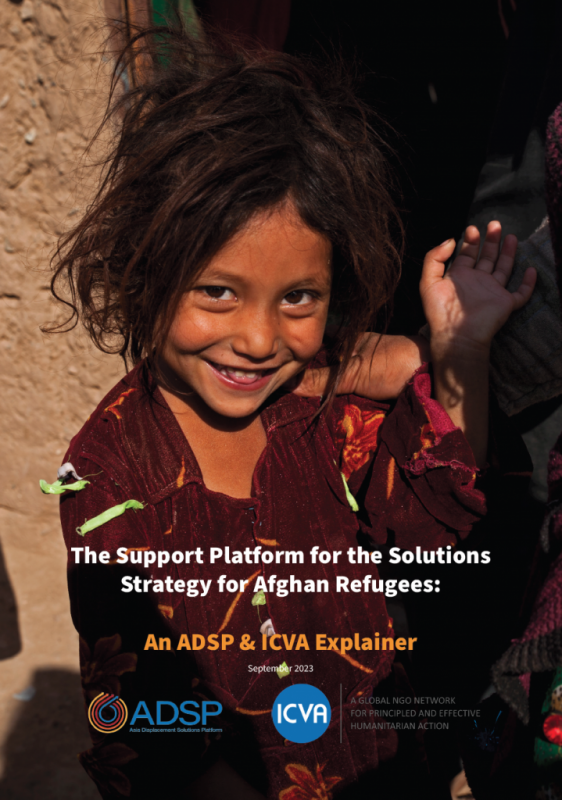
This Explainer, a collaboration between the International Council of Voluntary Agencies (ICVA) and the Asia Displacement Solutions Platform (ADSP), aims to provide clear guidance on the Support Platform for the Solutions Strategy for Afghan Refugees. It offers insights on how NGOs and others can...
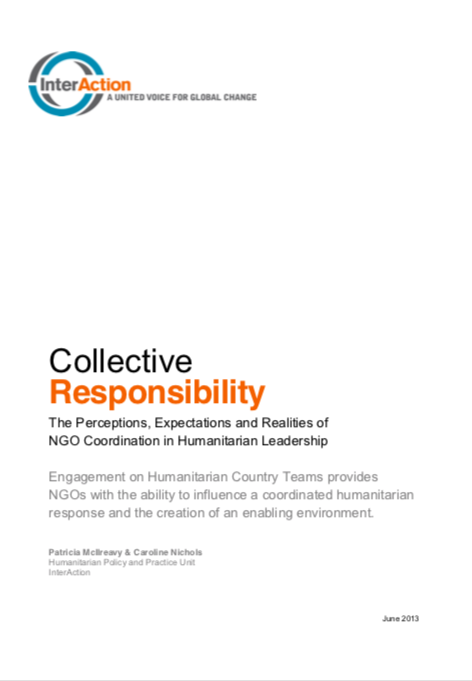
NGOs are widely recognized as key actors in an effective, efficient and accountable emergency response because they are frontline implementers for the majority of humanitarian operations. As such, the appropriate engagement of NGOs within humanitarian leadership is a critical component for success....
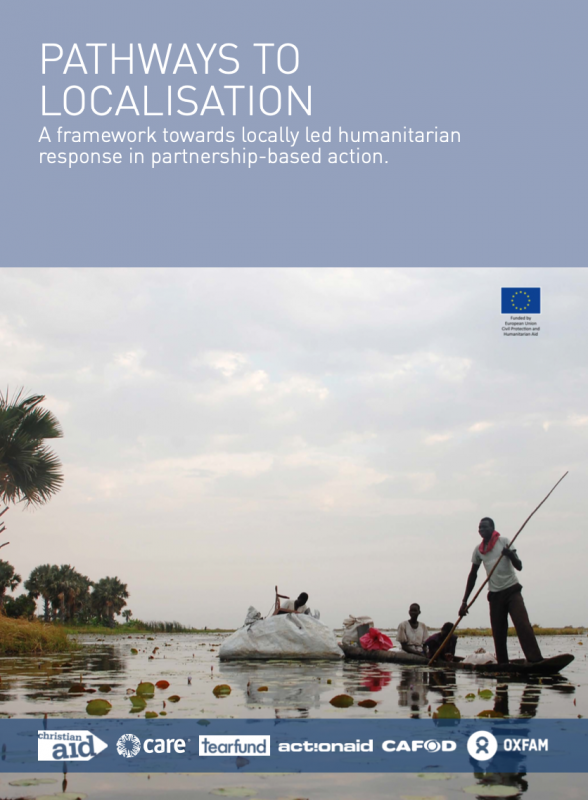
Pathways to Localisation, presents a synthesis of the common areas across the four national localisation frameworks in a Global Localisation Framework in two areas: 1) actions for partnership-based humanitarian action; and 2) actions for an enabling environment for localisation. Actions, and...

In contexts of armed conflict, international humanitarian organisations increasingly rely on local and national actors to deliver aid. South Sudan is no exception. This report moves beyond abstract assumptions and global-level debates to understand the reality of the struggles and strategies of...
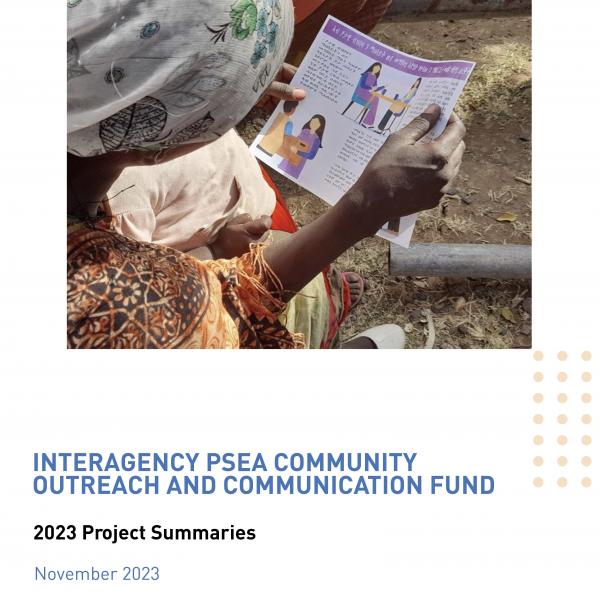
The PSEA Outreach Fund was established in 2020 as a deliverable of the High Commissioner’s IASC Championship on Protection from Sexual Exploitation and Abuse (PSEA) and Sexual Harassment (September 2019 to December 2020). A joint initiative of UNHCR and the International Council of Voluntary...
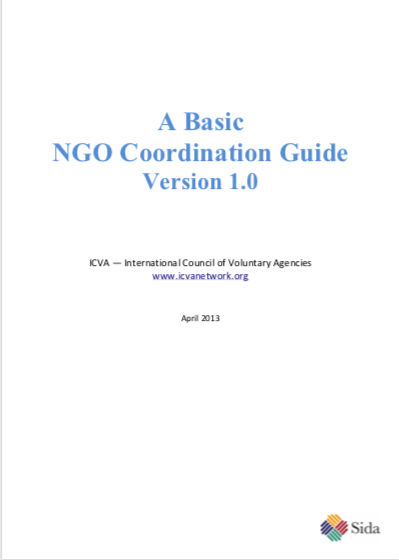
This Guide is not meant to be a definitive “how to” manual, but it focuses on issues and areas to consider when undertaking NGO coordination and when setting up an NGO coordination body. It is an entry point into the world of NGO coordination – an area of humanitarian response that is vast in...
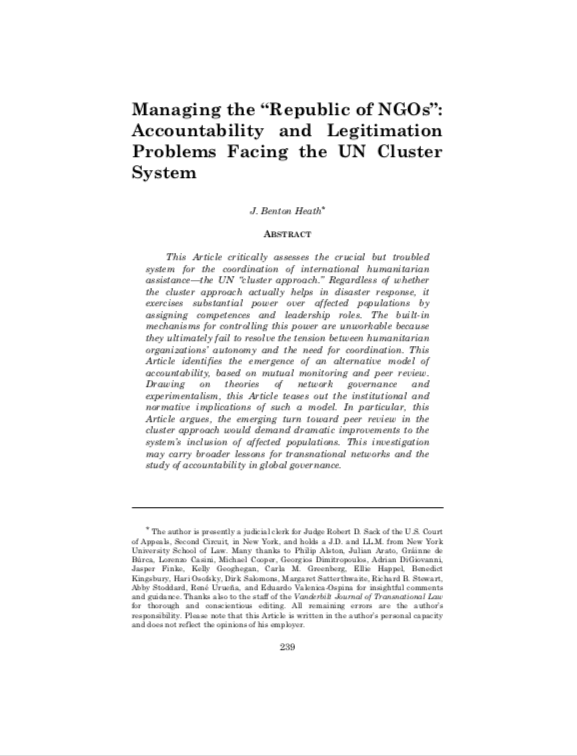
This Article critically assesses the crucial but troubled system for the coordination of international humanitarian assistance—the UN “cluster approach.” Regardless of whether the cluster approach actually helps in disaster response, it exercises substantial power over affected populations by...
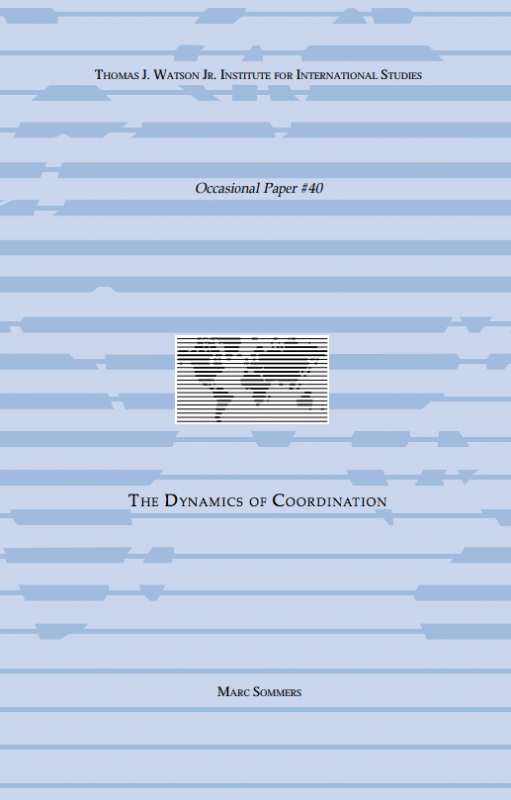
This study takes a fresh look at coordination dynamics by exploring two situations that were noteworthy both for the difficult challenges humanitarian organisations faced and for their innovative responses. The cases shed light on coordination in general and two contexts in particular: coordination...